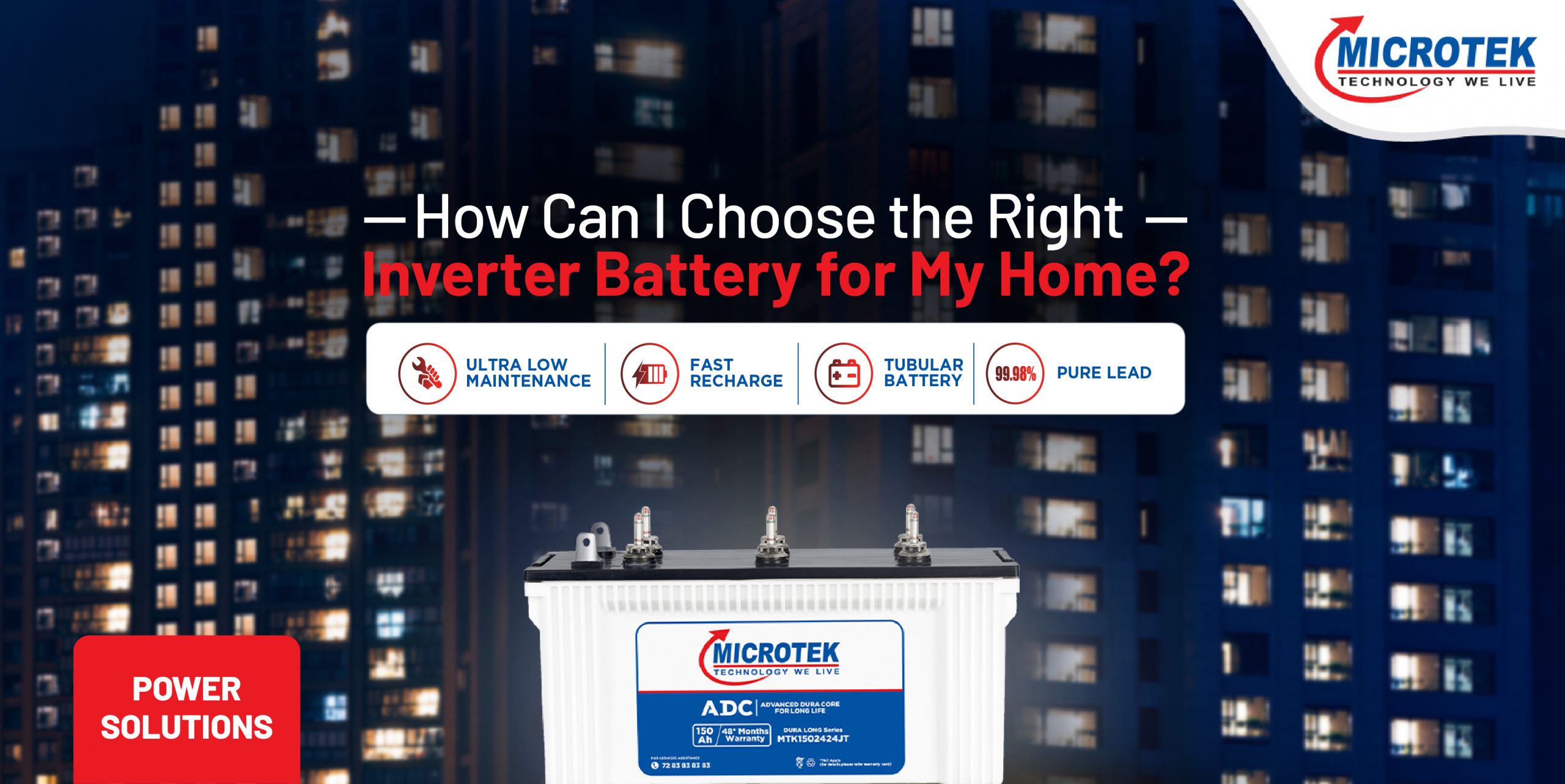
February 3 , 2024

Winters are here and with every passing year our diverse needs for electricity keeps growing. Today, where electricity powers our life and brings convenience, ease and comfort, it’s very important to have a seamless power back-up that keeps things going during the power cuts. Depending on where you live, power cuts can be a short affair and in some areas the outages may range from 30 minutes to an hour. This is a major issue whether you are a student or a small organization.
While there are multiple solutions available in the market now, the question remains which will fulfil the consumer’s demands and requirements. This is where the inverter battery comes to the table. Microtek, as a brand has been in this game for a very long time and has been an integral part of the revolution that has taken place in the field of electrical power backup solutions. Ultimately considering all the pointers, the solution boils down to an Inverter and battery set that gives you the back-up whenever required.
Researching reputable brands: When researching battery brands, read customer reviews and expert recommendations to get a good insight. Understanding users’ experiences with different brands and consider expert opinions to get the best available inverter battery in the market.
Warranty coverage: A comprehensive warranty is a clear sign of the manufacturer’s confidence in their product, along with that it also gives the consumer assurance about potential replacements or repairs within the specified time frame. Try to prioritize batteries with adequate warranty coverage to ensure protection against any inconvenience.
After-sales service: To gauge the brand’s commitment to customer satisfaction, assess the after-sales service, which includes customer support and service network. After-sales service is crucial, especially for electrical products which require servicing and maintenance. A responsive and accessible customer service network is very important for addressing queries and concerns.
Lead Acid Battery: Lead acid batteries are traditional rechargeable batteries that last long due to their working dynamics. These batteries are very dependable and require low maintenance. They are used as power back-up solution as they provide steady and consistent power supply by utilizing lead dioxide and sponge lead.
Lithium Battery: Lithium batteries come with advanced energy storage technology, and they have high energy density in a very lightweight design. Lithium batteries are widely used in electronics and electric vehicles due to the portability factor; they have longer life cycles and faster charging capabilities than traditional alternatives.
Now that we have figured out the solution to deal with power outages, the next task is to figure out how the inverter works and why inverter batteries are a very crucial part of the entire solution. The main role of Inverter is to convert the DC current stored in batteries into AC current that can be used to power the electrical appliances. The basic rules are that the inverter you select should be determined by the number of appliances you want to use during power outages, while the battery you select will depend on how long you want the power output for.
The very basic rules to do the inverter battery capacity calculation are very simple, it is determined by the number of appliances you want to use during power outages. Let us suppose you need to run a 100W heater, one 60W TV and two 40W computers in your office, so the total wattage would be the sum of the wattage of each appliance, which is 240W. You can always keep a 100W buffer for emergency situations, which will also help add a few more plug points or appliances soon.
Physical dimensions: When choosing a battery, keep its physical dimensions in mind to ensure that it properly fits within the available space. Accurately measuring the installation area and understanding the battery’s size specifications will help to avoid compatibility issues and ensure seamless integration of the device in your space.
Weight considerations: This is very important as many of us require a solution that is portable and versatile. Understanding the load-bearing capabilities ensures a safe and stable installation, avoiding any potential structural issues caused by excess weight.
Portable options: Consider compact and lightweight battery options for greater versatility as you can carry them along with you very easily. Portable batteries have a variety of applications because they allow for easy handling and transportation, making them ideal for use in mobile or remote settings.
Choosing the correct inverter battery needs a careful balancing of aspects such as battery type, capacity, and compatibility. Taking these crucial elements into consideration offers a personalized solution that satisfies individual power requirements and operational needs. When choosing an inverter battery, it is vital to encourage a complete review of power requirements, space limits, and financial constraints. By balancing these aspects, one may make an informed decision that not only fits immediate needs but also predicts future wants, resulting in a durable and efficient power backup system.